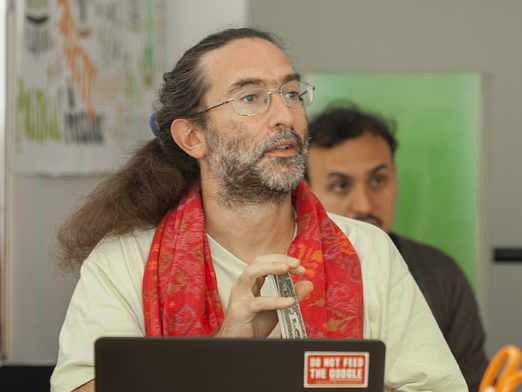As more and more attention is gradually turned to alternative currencies, a little more clarification would be helpful about the choice of mechanisms around, and how they vary.
All the official currencies of the world are basically of the same type, issued by banks at the request of borrowers and backed by a small fraction of their value. The money circulates in a mix of digital, paper and coinage, and needs to be paid back at interest to the banks. This interest mechanism forces the economy to grow, and the net growth is pocketed or re-invested by the banks.
The mechanism which is getting the most press at the moment is the scrip currency. A community prints it's own attractive scrip notes of nominal value equivalent to the official currency. Schemes such as Berkshares and the Totnes pound have generated strong local loyalties. Though tied to the official currency, they are sold at a discount, and then local shops give benefits to customers using that currency. The essential idea here, at least in it's modern incarnation, is to keep the value circulating and enriching the local community. My feeling is that this is a reaction to supermarkets.
LETS is a very different mechanism, and less discussed in the popular press. Essentially, LETS is just an IOU network, such that the total balance of all the accounts is necessarily zero. Transactions are usually administered using cheques, although occasionally notes are issued, usually for one off events. The value of the currency is backed by the community, and the LETS allow the community to exchange without official money.
Most of the pros and cons of each can be deduced from the last two paragraphs alone, but this is how I read it. The scrip currencies are easier for communities to adopt because their value is linked to the official currency, and it's easy to buy in and buy out. IMHO have too much in common with official money and are no lifeboat in times of scarcity.
And here is my point. LETS currencies provide all the practical benefits of scrip currencies and more, but the jump to adopting them is larger. But because their value comes from living community rather than the collective faith of the nation in the government, we may be more inclined to trust them in difficult times.

Comments